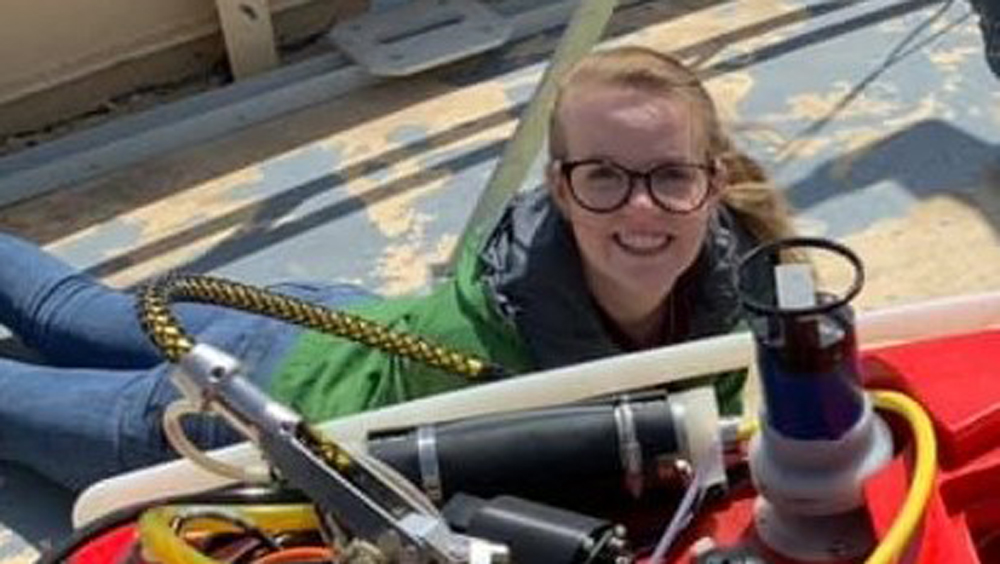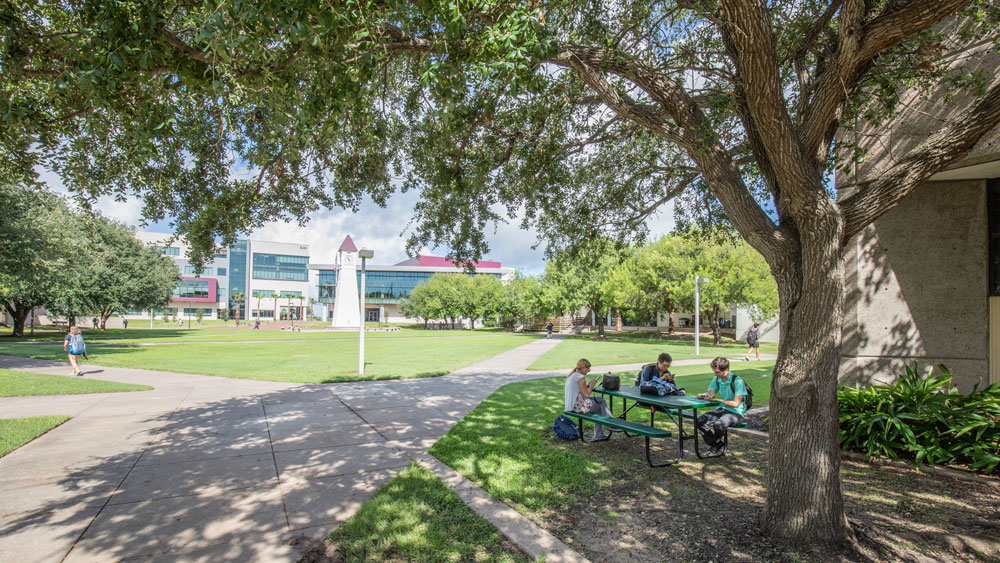
A conversation with Lucy Miller, a senior in the Department of Ocean Engineering at Texas A&M University at Galveston.
A first-generation student with a longstanding passion for the sea, Lucy Miller started her Texas A&M journey pursuing a degree in marine biology. Her interest in emerging technologies, however, led her to chart a new course in ocean engineering after her first semester.
“I fell in love with the traditions and atmosphere of Texas A&M and the island vibe of Galveston,” Miller said.
Now, as she sets her sights on graduation and beyond, Miller took a moment to chat about her time at Texas A&M.
Q: Why did you choose to study ocean engineering?
A: I have always felt drawn to the ocean, my heart belongs here. I picked ocean engineering because I wanted to study remotely operated vehicles (ROVs) and autonomous underwater vehicles (AUVs), but also get a degree that is diverse and encompasses various parts of many engineering disciplines.
Q: How would you describe the ocean engineering department in one word? What makes it different from other departments?
A: Diverse. This program has so many students from different backgrounds with different career goals. Ocean engineering encompasses pieces of civil engineering, aerospace engineering and mechanical engineering, and brings them together in a marine environment.
Q: What is your dream job and why?
A: There is a huge worldwide initiative to use ROV and AUV technology to map the seafloor and explore the deep ocean. I’d love to help accomplish this, it is my dream. I would like to work as an ROV pilot and technician for a while and then use that knowledge to design and create new technology for the future.

Q: Which organizations are you involved in?
A: I am involved in our professional organizations, Marine Technology Society (MTS) and Society of Naval Architects and Marine Engineers, which allows undergraduate students to meet and interact with industry professionals. I also got the privilege to be on the Human Powered Submarine team during my time in College Station last semester. This semester, I am competing in (educating Smart Marine Aggies Robotic Technologies), a new robotics competition on the Galveston campus designed to teach students about programming, robotics and collaborating with teams made up of members with different technical skills and experience.
Q: What has been your greatest accomplishment in school and outside of the classroom?
A: My greatest accomplishment in school has been learning to persevere, even when things feel impossible. This has granted me so many opportunities to meet amazing people who give me confidence and the chance to travel to foreign countries through study abroad.
Outside of the classroom, I had the opportunity to solo build an ROV that gave me hands-on experience with the technology and allowed me to learn many new skills that I will use in the future
Q: Do you have any key mentors or people that have greatly influenced your career choice or who you are?
A: Of course! There are professors who have embraced my career goals and have worked hard to help me succeed, Dr. Paul Koola and Dr. David Allen. Last summer, I got to participate in a couple of MTS sponsored programs in Michigan and New Jersey. Liesl Hotaling, former MTS vice president for education, was the brains of these programs and has continued to be a mentor to me. In addition, the instructors I had at Northwestern Michigan and Rutgers University did nothing but encourage me and further solidify my career goals. Also, my family has been one of my greatest supporters. They have always encouraged me to follow my dreams and picked me up when things get hard.
Q: What advice would you give to your fellow engineering students?
A: Follow your dreams and pursue your passions. You are far more likely to succeed when you are doing something you are passionate about.